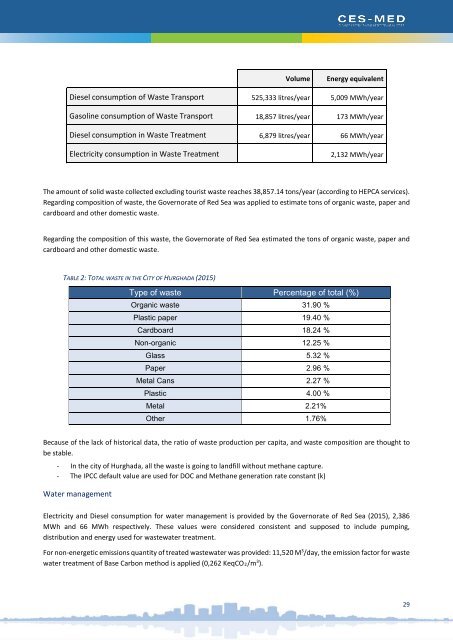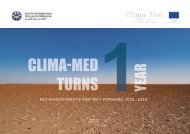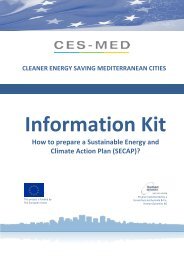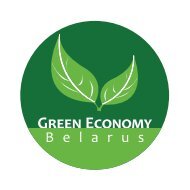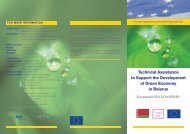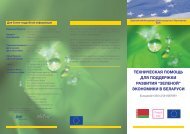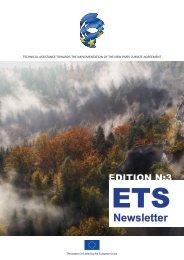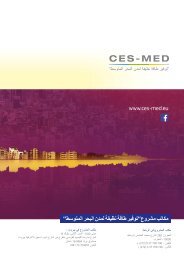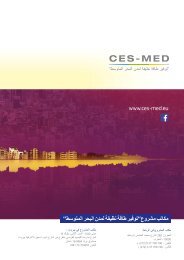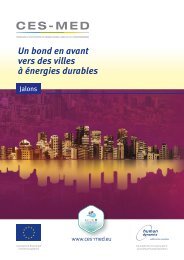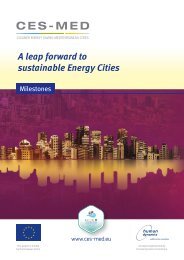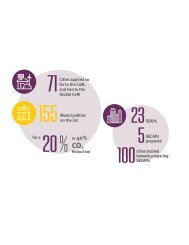020318_Hurghada SECAP_FINAL
Create successful ePaper yourself
Turn your PDF publications into a flip-book with our unique Google optimized e-Paper software.
Volume<br />
Energy equivalent<br />
Diesel consumption of Waste Transport 525,333 litres/year 5,009 MWh/year<br />
Gasoline consumption of Waste Transport 18,857 litres/year 173 MWh/year<br />
Diesel consumption in Waste Treatment 6,879 litres/year 66 MWh/year<br />
Electricity consumption in Waste Treatment<br />
2,132 MWh/year<br />
The amount of solid waste collected excluding tourist waste reaches 38,857.14 tons/year (according to HEPCA services).<br />
Regarding composition of waste, the Governorate of Red Sea was applied to estimate tons of organic waste, paper and<br />
cardboard and other domestic waste.<br />
Regarding the composition of this waste, the Governorate of Red Sea estimated the tons of organic waste, paper and<br />
cardboard and other domestic waste.<br />
TABLE 2: TOTAL WASTE IN THE CITY OF HURGHADA (2015)<br />
Type of waste Percentage of total (%)<br />
Organic waste 31.90 %<br />
Plastic paper 19.40 %<br />
Cardboard 18.24 %<br />
Non-organic 12.25 %<br />
Glass 5.32 %<br />
Paper 2.96 %<br />
Metal Cans 2.27 %<br />
Plastic 4.00 %<br />
Metal 2.21%<br />
Other 1.76%<br />
Because of the lack of historical data, the ratio of waste production per capita, and waste composition are thought to<br />
be stable.<br />
- In the city of <strong>Hurghada</strong>, all the waste is going to landfill without methane capture.<br />
- The IPCC default value are used for DOC and Methane generation rate constant (k)<br />
Water management<br />
Electricity and Diesel consumption for water management is provided by the Governorate of Red Sea (2015), 2,386<br />
MWh and 66 MWh respectively. These values were considered consistent and supposed to include pumping,<br />
distribution and energy used for wastewater treatment.<br />
For non-energetic emissions quantity of treated wastewater was provided: 11,520 M 3 /day, the emission factor for waste<br />
water treatment of Base Carbon method is applied (0,262 KeqCO2/m 3 ).<br />
29


